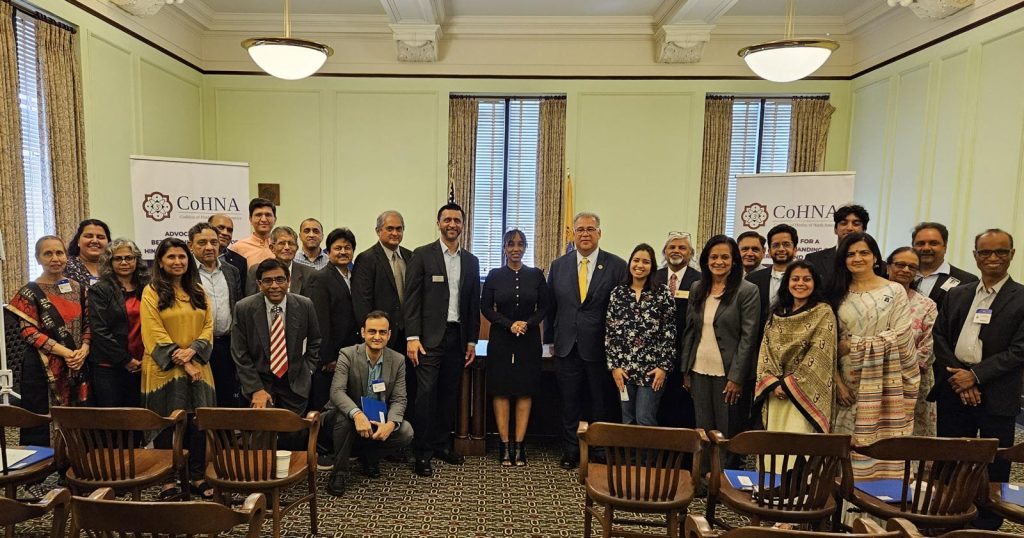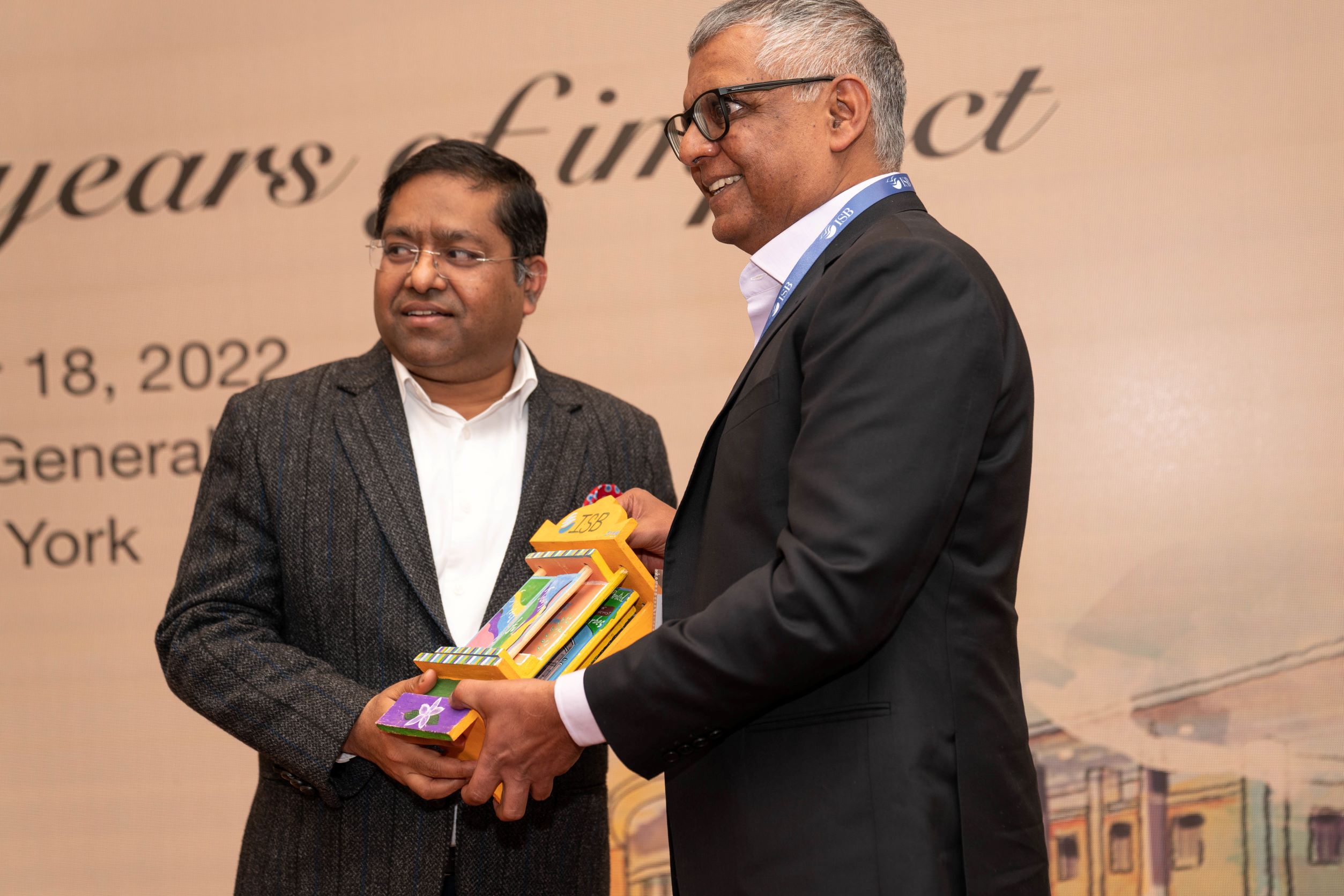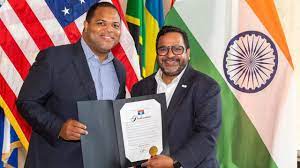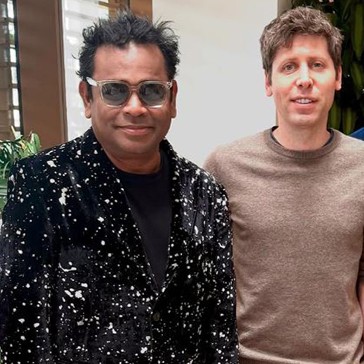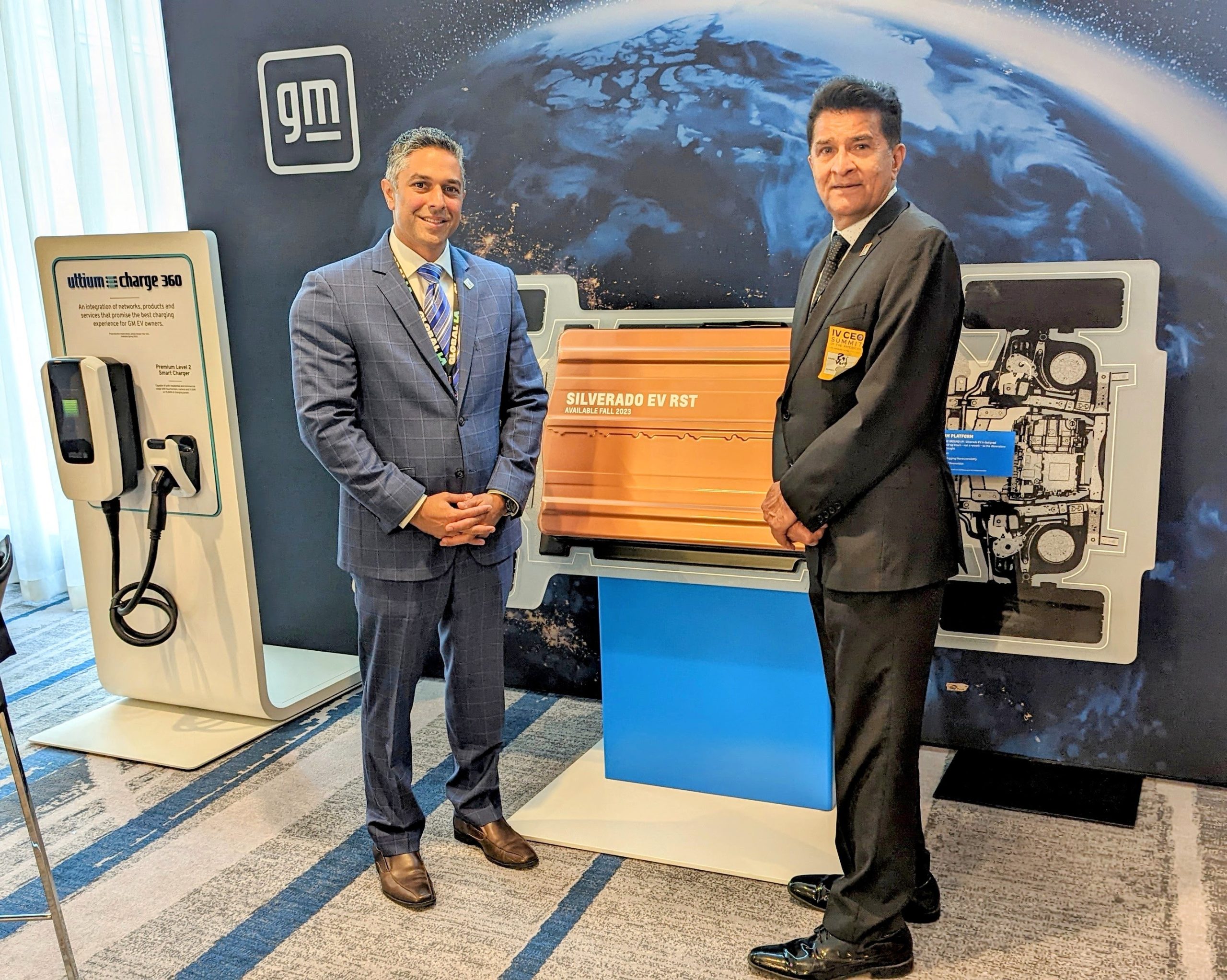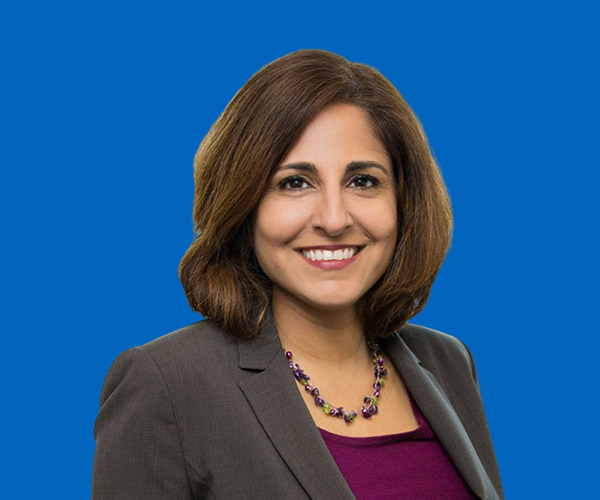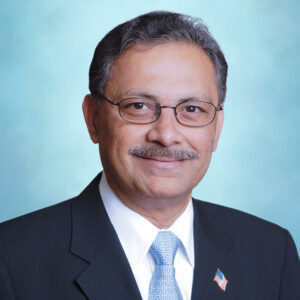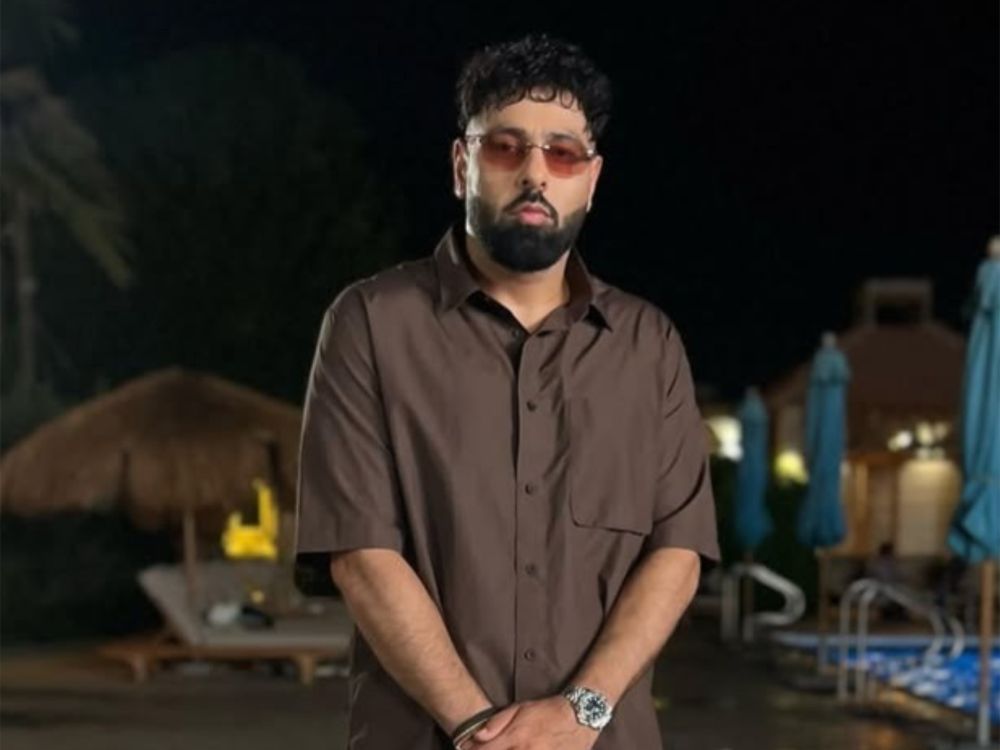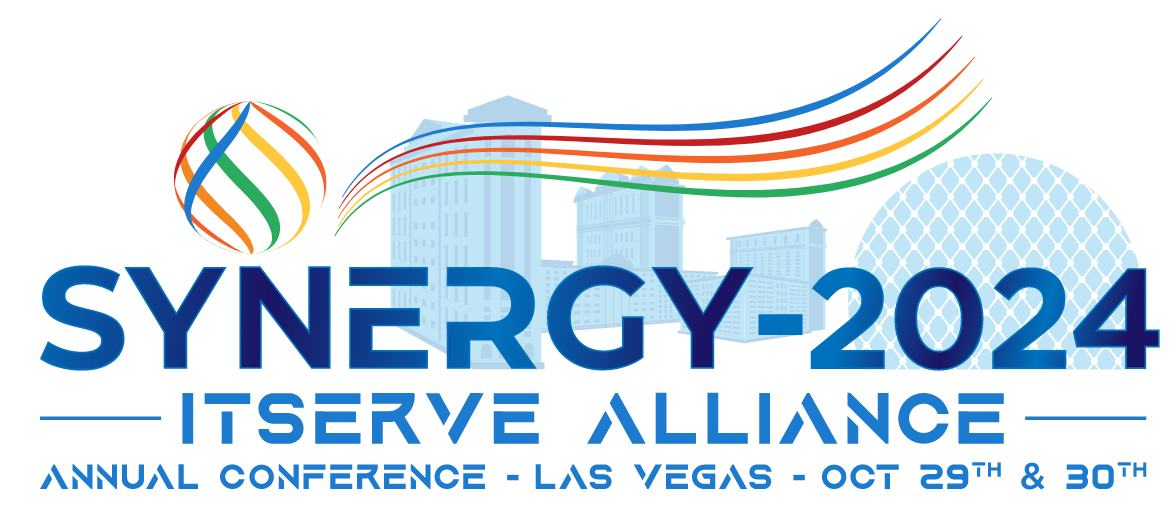The gathering hosted by CoHNA comes against the recent introduction of SCR104 condemning Hinduphobia
Our Bureau
Trenton, NJ
On May 21, 2024, more than 15 State Senators and Assembly Members (Democrats and Republicans), attended the first ever Hindu Advocacy Day in Trenton, New Jersey, hosted by the Coalition of Hindus of North America (CoHNA). New Jersey is home to one of the largest Hindu communities in the US, and the bi-partisan event focused attention on their many contributions to the state across all sectors. Lawmakers also pledged support for the Hindu Heritage Month resolution for New Jersey, which has passed the Assembly and is now making its way to the Senate.
Coming on the heels of the recently introduced resolution SCR 104, CoHNA’s Hindu Advocacy Day also focused on the growing problem of anti-Hindu hate and Hinduphobia. Senator Vin Gopal, the primary sponsor of the bill, joined the event in the middle of a busy senate schedule, recalled how he took his oath on the Bhagavad Gita while being sworn in, and that hate in any form must not be tolerated. He thanked CoHNA for working with his office on the resolution and invited the attendees to the Senate voting session for a special shoutout.
“I am really excited CoHNA got a special shoutout and recognition in the Senate for coming to Trenton and hosting the Advocacy Day and working on the Hinduphobia resolution,” said Hitesh Trivedi, CoHNA Board Member and Director of its NJ chapter. “We thank our New Jersey leaders for standing with the Hindu community and engaging in a constructive dialogue. As many of our lawmakers stressed today, it is critically important for Hindus to engage and talk with our elected officials – and a grassroots platform like CoHNA has been the starting ground for so many of us.”
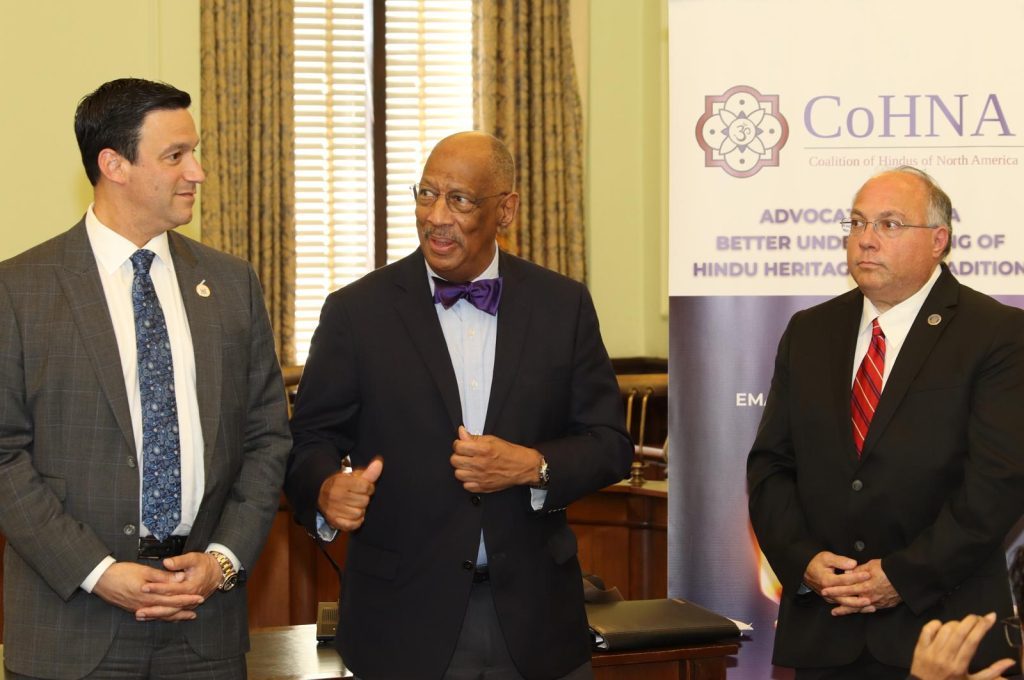
FBI data and research from universities like Rutgers have documented the growing hate against Hindus in America. The rash of attacks on individuals and on Hindu temples from New York to California has brought the problem home in a most visceral way, traumatizing the community and impacting the ability of some to freely practice their faith.
The gathering was addressed by lawmakers from both sides of the aisle, all of whom thanked the Hindu community for the scale, depth, and impact of their contributions to their districts, to New Jersey, and to the US as a whole. Others shared their experiences of being part of vibrant Hindu celebrations – be it Diwali, Holi, Navratri, Guru Vandana, or International Yoga Day.
Upendra Chivukula, the first Hindu Assemblymember ever to be elected in New Jersey, shared insights from his decades of experience on why representation matters and how far the community has come. “If we don’t ask, others will ask for us. Whoever gets to the lawmakers first will get their attention first,” he said, thanking CoHNA for organizing this important day and bringing the community to Trenton to meet public officials.
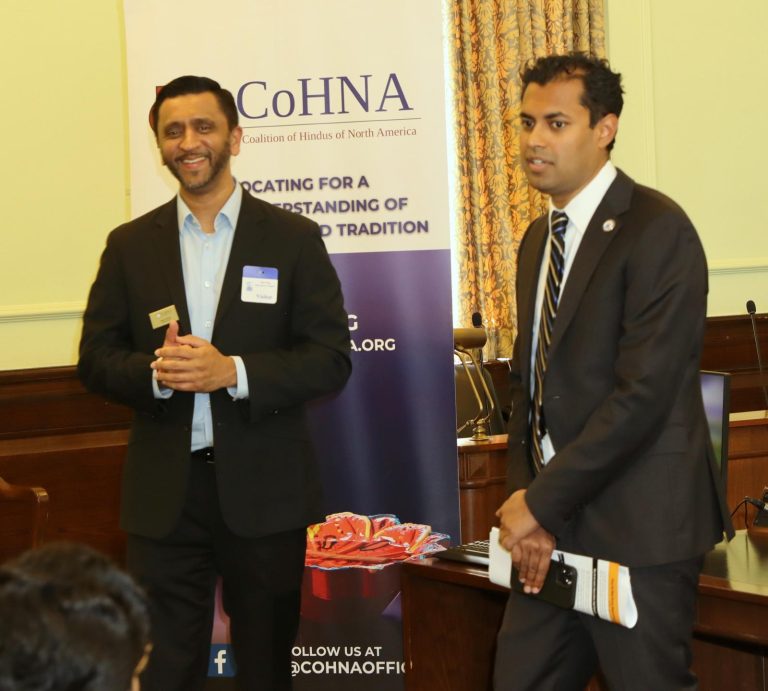
Several Hindu community leaders attended the event and spoke of the important work that CoHNA is doing in representing the community and advocating for the causes that the community cares about and giving Hindus a platform. Speakers at the event explored the many different ways American Hindus can serve and give back to their community.
“I was inspired by the Hindu values I learned while growing up through Bal Vihar camps in Massachusetts and New Jersey,” said Cherry Hill Councilwoman Sangeeta Doshi, recalling her decision to run for office.
The NJ Democratic Hindu Caucus Co-chairs, Falguni Pandya and Venu Menon, also talked about why the caucus was formed and how it has been advocating for the Hindu community.
Collaboration between different organizations was also an important theme, where leaders like Dhiren Amin, President of the Indian Business Association, Ganesh Ramakrishnan, NJ Communications Coordinator for Hindu Swayamsevak Sangh, and community leader Dr. Mukund Thakar highlighted the need to work in tandem to amplify the positive impact on the community in various areas – from political representation and education to serving people regardless of race, ethnicity, or religion.
















